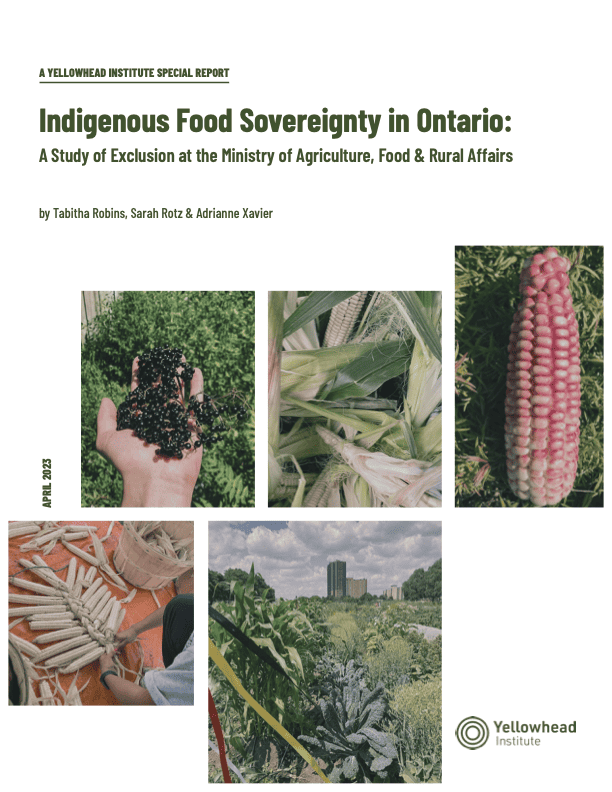- About
- Research
-
-
- Special Reports & Features
- Braiding Accountability: A Ten-Year Review of the TRC’s Healthcare Calls to Action
- Buried Burdens: The True Costs of Liquified Natural Gas (LNG) Ownership
- Pretendians and Publications: The Problem and Solutions to Redface Research
- Pinasunniq: Reflections on a Northern Indigenous Economy
- From Risk to Resilience: Indigenous Alternatives to Climate Risk Assessment in Canada
- Twenty-Five Years of Gladue: Indigenous ‘Over-Incarceration’ & the Failure of the Criminal Justice System on the Grand River
- Calls to Action Accountability: A 2023 Status Update on Reconciliation
- View all reports.
- Special Reports & Features
-
-
- Yellowhead School
-
- The Treaty Map
- LIBRARY
- Submissions
- Donate
This report illustrates the ongoing concerns and struggles of Indigenous peoples seeking food sovereignty in Ontario, and the continuity of colonial views and practices in government ministries.
We examine these realities through a case study involving the Ontario Ministry of Agriculture, Food, and Rural Affairs (OMAFRA), as well as Indigenous community members that engage with OMAFRA and other parts of the agri-food public sector. Our study reveals that, first, Indigenous peoples remain structurally excluded from government decision-making, visioning, strategic and land-use planning, policy, and programming. Second, colonial laws, policies, processes, and practices continue to dominate, while Indigenous laws and points of view are marginalized. It follows that OMAFRA’s goals, priorities, and programs have contributed to land contamination and privatization in ways that hinder Indigenous peoples’ access to their traditional territories, food and land-based practices, and infringe on their treaty rights. Third, non-Indigenous people, including many working in government, lack crucial knowledge concerning treaties and Indigenous relationships to land and stewardship. This is an ongoing and significant barrier to reconciliation. Finally, we argue that while Indigenous land and food practices have long been marginalized, they have much to offer in building a sustainable food system across diverse local ecological contexts.
KEY QUESTIONS
How does the Ontario Ministry of Agriculture, Food, and Rural Affairs infringe on the rights of Indigenous peoples’ food sovereignty goals? What visions do communities hold for reclaiming sustainable food systems?
Today there are numerous and overwhelming challenges that prevent good food from making its way to Indigenous tables. Yet Indigenous food sovereignty is a living reality and has been practiced in Indigenous communities since time immemorial.
- Tabitha Robin, Sarah Rotz, and Adrianne Xavier

